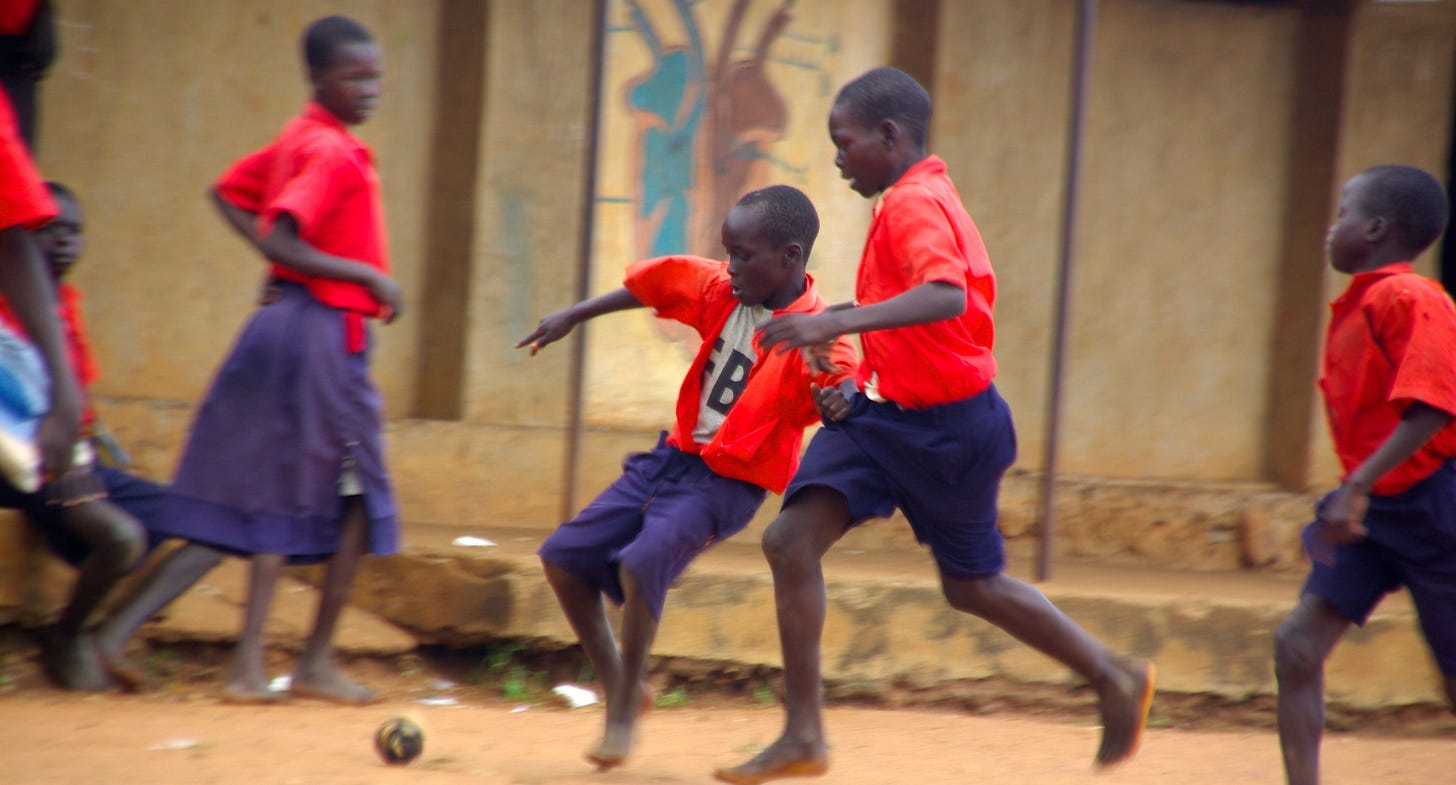Why are there no African soccer world champions?
Guest post by Volker Seitz on the occasion of the European Championship

In many teams at the current European Championship, there are numerous very successful players whose families come from African countries. Kylian Mbappé, Romelu Lukaku, Nico Williams or Lamine Yamal. Almost everyone knows them. That's why I'm often asked why no African team has managed to get past the quarter-finals at previous World Cups, even though there are fantastic players, great individualists, an overwhelming mix of dynamism, enthusiasm and mass enthusiasm.
Africans like to give their national teams fighting names. They are not always scary, as is the case in Benin and Burundi. The names have cultural-historical and mythological significance and usually originate from the animal kingdom. For example, Benin: Les Ecureuls - squirrels; Burundi: Les Hirondelles - the swallows; Côte d'Ivoire: Les Éléphants - the elephants; Cameroon: Les Lions indomptables - the indomitable lions; Madagascar: Les Scorpions - the scorpions; Mozambique: Mambas; Nigeria: Super Eagles - mighty eagles.
Home-made problems
The African associations are under the thumb of their governments. The permanent president of Cameroon (since 1982), Paul Biya, even interferes in the team line-ups. In Africa, soccer is always state policy. On no other continent are politicians taken so seriously in soccer and vice versa. The autonomy of the sport is not safeguarded by the intervention of politics.
Medical care is repeatedly replaced by magic power. A fetish is buried on the pitch to drive away evil spirits. Coaches are regularly hired and fired, again in Cameroon on the orders of the president. From 2000 to the present day, 22 coaches have worked in Cameroon, including three Germans: Winfried Schäfer, Otto Pfister and Volker Finke.
Soccer is not a corruption-free zone either - on the contrary. For example, African journalists I know repeatedly complain about the blatant plundering of association coffers and the personal enrichment of some associations' leaders. The money earned from participation in the World Cup is not invested in sports infrastructure or youth work.
Association officials are often unable or unwilling to plan and organize, especially in the long term. Unfortunately, the lack of professionalism is still evident. If you want to train as a European in Africa, you need composure and you have to fight. The concept of positive motivation by officials is largely unknown. There is a lack of targeted development of grassroots sport and structures geared towards competitive sport. This is why talented young people have been flocking to Europe for years.
Soccer is highly political
Since the mid-1990s, the migration of African soccer players to Europe has increased. Commercialization and TV broadcasting of important matches have sparked interest in European soccer in Africa. The easing of restrictions on foreign players in European professional soccer (Bosman ruling = decision of the European Court of Justice in 1995) opened the doors to European soccer for African players. At the “Africa Cup” in January/February 2024, for example, the German clubs were missing a total of 20 professionals1. (There are now almost 2000 Africans playing in professional leagues worldwide).
However, dark figures are also trying to make money. Thousands of talented African footballers are lured to Europe by dubious agents, neglecting their schooling and training. But the dream career of a professional who can support an extended family rarely comes true. The main thing is that the agents make money. If the players fail, they are left with nothing.
During my time in Cameroon2, Winfried Schäfer was dismissed as Cameroon's national coach. The Cameroonian government was very concerned that this could tarnish relations between Cameroon and Germany. There were underlying fears that the abundant development aid could be cut. I assured the Secretary General of the President that our relations would not be affected by a sports policy decision. However, the incident shows how highly political issues surrounding the national soccer team are in Africa.
Necessary follow-up note: Development aid was not suspended even after allegations of corruption. Instead, according to a statement from the Federal Ministry of Finance on June 13, 2024, Cameroon was forgiven debts amounting to 1.4 billion euros.
This text was first published in German by Achgut and translated into English by me.
Guest posts do not automatically reflect the opinion of the blog owner.
There are even two championships on the African continent: the Africa Cup and the African Nations Championship. Only players who play in the national leagues of their home countries are eligible for the latter.
Volker Seitz was ambassador to Africa for 17 years and wrote the bestseller "Afrika wird armregiert" (Africa is being governed into poverty), dtv, 11th edition 2021.


